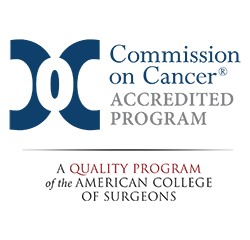Types of Urologic Cancer We Treat
Urologic cancers, which affect the urinary tract and male reproductive system, are some of the most common cancers we face, but your experience is unique. Our Cancer Care team has special expertise in treating patients with these conditions.
Bladder Cancer
We are skilled in treating bladder cancer, often with minimally invasive surgery, as well as chemotherapy, radiation therapy, immunotherapy and targeted therapy. We work with you on a personalized care plan that meets your needs and type of cancer.
Kidney Cancer
El Camino Health offers a range of approaches for the treatment of kidney cancer, including surveillance, percutaneous ablation, and partial and radical nephrectomy (kidney removal). We are often able to conduct these surgeries using minimally invasive procedures to ease your recovery and lower your risk of complications. We are also experts in using radiation, immunotherapy and targeted therapy to treat kidney cancer.
Prostate Cancer
Prostate cancer is often slow-growing and, with regular screening, we find most tumors in time for effective therapy. We offer treatment options ranging from minimally invasive surgery to radiation therapy to high-intensity focused ultrasound (HIFU) — approaches that help us achieve higher cure rates for early-stage cancers and life-prolonging care for advanced stages of prostate cancer.
Testicular Cancer
If you have testicular cancer, the urologic cancer experts at El Camino Health, including surgical, medical and radiation oncologists, collaborate on a personalized treatment plan with the most advanced techniques available. Your doctor may recommend laparoscopic retroperitoneal lymph node dissection (RPLND), a minimally invasive procedure to remove the abdominal lymph node. This procedure also helps find the exact stage and type of cancer so we can create the most effective treatment plan for you. We also offer testicular prosthesis placement for those who need it.
In addition to surgery, our radiation oncologists use highly precise external-beam radiation, which allows higher doses in fewer treatment sessions than traditional radiation therapy.
Symptoms & Diagnosis:
Urologic cancer can feel like or lead to:
- Back, hip or pelvic pain
- Blood in the urine (hematuria)
- Frequent, burning or painful urination
- Pain, discomfort or swelling or a lump in the testicles, scrotum or groin
- Painful ejaculation
- Trouble starting urination or emptying bladder or a weak flow
- Unexplained fever or weight loss
You know your body better than anyone. If you think you are feeling any urologic cancer signs or symptoms, reach out to your doctor or care team so we can learn more about what might be causing them.
Staying up to date with your health screenings can help find cancer early when it is most treatable, but you can also lower your risk of urologic cancers by not smoking, drinking plenty of fluids and avoiding exposure to cancer-causing chemicals.
We use imaging exams including transrectal ultrasounds and Artemis™ 3D imaging and navigation to diagnose urologic cancer. We will gather tissue samples (biopsies) to confirm a diagnosis and learn more about your tumor. If these tests find cancer, we refer you for a cancer consultation with an oncologist and urologist who specialize in treating urologic cancer. These experts review your test results and medical history to learn more about your diagnosis and form a treatment plan tailored to your needs.
We know learning you have urologic cancer can feel scary. That’s why we are committed to seeing you for a cancer consultation as quickly as possible — often within 48 hours — after your diagnosis so we can discuss treatment options, order additional tests and address any questions without delay.
Treatments
You deserve a personalized care plan tailored to your needs and your type of urologic cancer. Treatment may vary depending on your diagnosis. Each week, the Cancer Care team convenes a tumor board that brings together experts from across disciplines to collaborate on customized care plans for you. This collaboration has one common goal — to make sure you get the best possible care. Our multidisciplinary team of specialists, including urologists, nephrologists, radiologists and pathologists working alongside surgical, medical and radiation oncologists, offers the full range of urologic cancer treatments and collaborates to create a care plan that meets you where you are.
Surgery
Your doctor may recommend surgery to treat your urologic cancer. Your surgeon will discuss surgical options and make a recommendation on a case-by-case basis. We offer procedures including minimally invasive and robotic-assisted methods for prostate, kidney, bladder and testicular cancer, which help to save your nerves and protect your bladder control. El Camino Health was the first hospital in the region to perform robotic prostatectomy in the early 2000s. El Camino Health has performed more than 20,000 cases with the daVinci robot. We also perform focal therapies, including cryotherapy and irreversible electroporation, to treat prostate and kidney cancer.
Radiation
Your care team may recommend radiation treatment to eliminate your urologic cancer. Radiation oncologists at our Radiation Treatment Center have treated thousands of patients, and we use state-of-the-art radiation treatments, including stereotactic radiosurgery, adaptive radiation therapy, CyberKnife®, Calypso® 4D localization system radiation therapy and intensity-modulated radiation therapy, to treat urologic cancer with speed and precision. We also offer brachytherapy, or internal radiation therapy, that places high-dose radiation close to your tumor to shrink or destroy its cells. These methods also allow for higher doses in fewer treatment sessions than traditional radiation therapy.
High-Intensity Focused Ultrasound
Chemotherapy
Targeted chemotherapy is sometimes used to treat urologic cancer. We work with you to determine if chemotherapy is a good option for your cancer and collaborate on the right combination of anticancer drugs, anti-nausea medicine and pain medication for your needs. El Camino Health is also at the forefront of hospitals using targeted therapy, a precise approach that finds a unique combination of drugs to combat your urologic cancer. We analyze your tumor to learn about its protein and chemical makeup, then use the latest research to find which drugs will have the greatest impact fighting it.
Clinical Trials
We are always looking for the next opportunity to improve detection, ease treatment and find better cures for your urologic cancer. That’s why we collaborate with other medical centers and the National Cancer Institute on urologic cancer clinical trials like innovative chemotherapy, radiation and immunotherapy.
If you’re interested in participating in this leading-edge research, talk to your care team to find a study that’s right for you.
Cancer Awards & Accreditations
Our superior Cancer Care has earned us a three-year accreditation as a comprehensive community cancer program from the Commission on Cancer of the American College of Surgeons (ACS). Accreditation ensures that the care you receive right here in your community is high-quality and uses evidence-based, national treatment guidelines.
We’re also an ACS Surgical Quality Partner and committed to the highest surgery standards.
Patients rate us highly, too. Based on PressGaney patient satisfaction surveys, our “likeliness to recommend” score is over 90%, and we’ve won the top patient experience award multiple years in a row.
 |  |
Cancer Patient Stories
You are our inspiration. Hear how El Camino Health Cancer Care has helped other patients beat cancer — and how we can support you at every step of the way.

